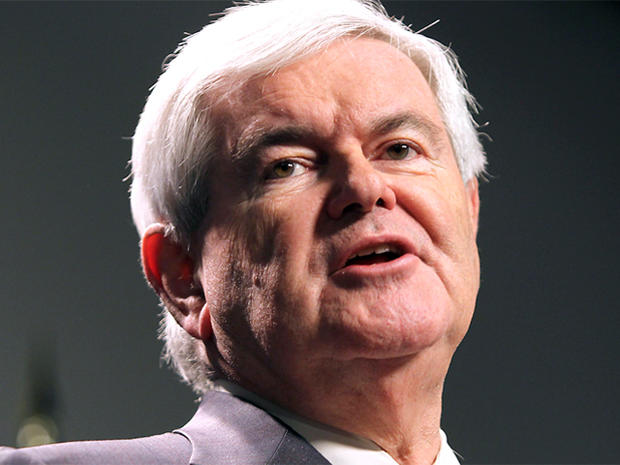Newt Gingrich not technically a lobbyist, but...
As Republican presidential candidate Newt Gingrich has climbed to the top of the polls, the former House speaker has repeatedly stated that the money he earned doing business with the health care industry and controversial clients like Freddie Mac never came from lobbying.
But an in-depth look at Gingrich's business practices from the New York Times illustrates how Washington insiders can use their clout to exert influence on behalf of corporate interests, even if they're not officially a "lobbyist."
The Times takes a close look at Gingrich's work as a health care consultant for the company he founded, the Center for Health Transformation. Health care firms paid as much as $200,000 a year to join the group, the Times reports, in order to gain access to Gingrich. The former politician arranged meetings between executives and lawmakers, and sometimes promoted the companies he did business with in presentations to lawmakers.
In one example, the center sponsored a "health transformation summit" in Florida in 2006, in which state lawmakers heard about the services of two dozen of Gingrich's clients.
The Times reports that Gingrich went to great lengths to clarify that he never served as a lobbyist. For instance, a 2001 contract with a plastics company said Gingrich "does not provide lobbying services of any kind" -- a phrase that the Times reports became a standard part of his contracts.
Gingrich's campaign says that Gingrich never promoted an idea simply to help a client -- he only promoted ideas he believed in. Furthermore, they say, his clients paid for access to him because of the strength of his ideas.
"You have somebody who knows what he believes in, he can effectively communicate it, and he's successful in doing it," said Gingrich spokesman R. C. Hammond told the Times.
After reports revealed Gingrich made nearly $2 million representing mortgage giant Freddie Mac -- a regular target of conservative attacks -- Gingrich told CBS News, "I did no lobbying and I am not going to defend any kind of bad business practices."
Though Gingrich may have never served as a registered lobbyist, he does seem to have served as a conduit for companies to have access to lawmakers. When Gingrich says he was never a lobbyist, he's using a narrow definition of the term.
Asked by the Washington Post what constitutes lobbying, Gingrich's longtime attorney Randy Evans said, "Anything that looks like, smells like, walks like an attempt to influence legislation on behalf of a client for money."
The federal Lobbying Disclosure Act defines "lobbying activity" as "any efforts in support of such contacts, including preparation or planning activities, research and other background work that is intended, at the time of its preparation, for use in contacts and coordination with the lobbying activities of others."
An individual must register as a lobbyist if they spend more than 20 percent of their time on "lobbying activity."
Corporate influence peddling is pervasive in Washington, and Gingrich certainly isn't the only politician to come under scrutiny for his business ties. President Obama took some heat last month after the Times reported that at least 15 of Mr. Obama's major donors, who have raised more than $5 million so far for the president's re-election campaign, work in the lobbying industry, though they are not technically registered lobbyists. The ties don't break any rules but would seem to break Mr. Obama's own personal standards to keep lobbyists out of his campaign.
Many former congressmen haven't been as concerned about working as lobbying as Gingrich has been -- perhaps because they didn't share his presidential ambitions. According to the watchdog group Public Citizen, between 1998 and 2006, 43 percent of all members of Congress took lobbying jobs after leaving Congress, landing positions with an average annual salary of $2 million.
